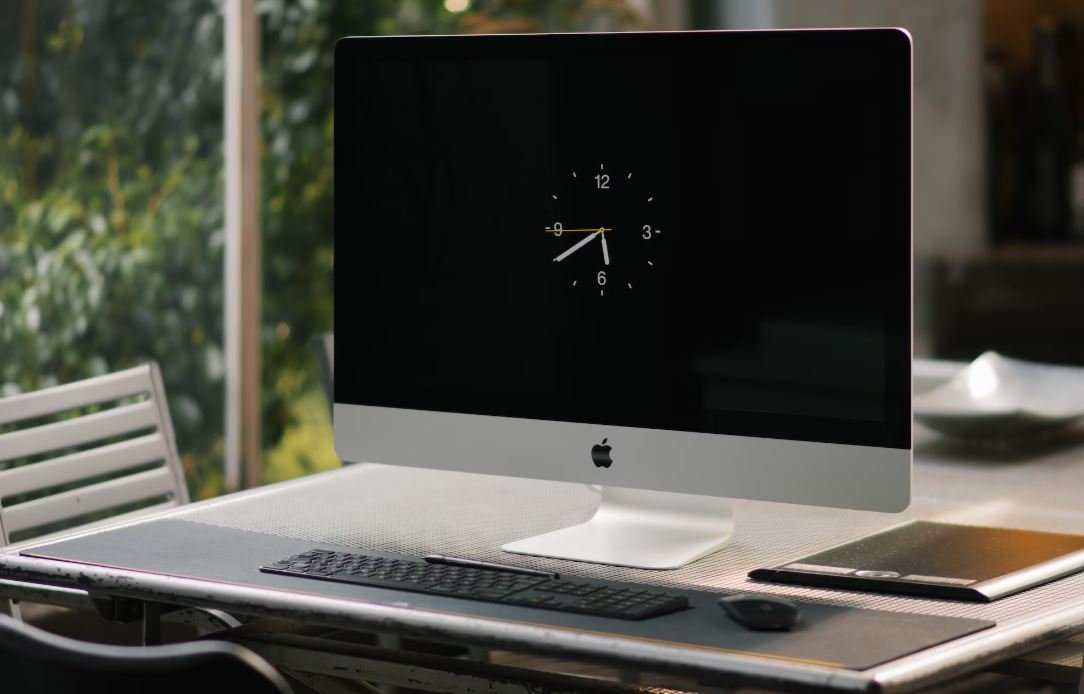Podcast Music Questions
The use of music in podcasts plays a crucial role in setting the tone, enhancing storytelling, and creating a memorable listening experience for the audience. However, many podcasters often have questions about music licensing, copyright issues, and where to find the best music for their podcasts. In this article, we aim to address some common podcast music questions and provide insightful information for podcasters.
Key Takeaways:
- Choosing the right music for your podcast is essential for establishing the desired atmosphere and engaging your listeners.
- Understanding music licensing, copyright, and royalty-free options can help podcasters avoid legal issues and ensure proper compensation for artists.
- Exploring various platforms and resources can provide a wide range of music options while respecting licensing agreements.
1. Where can I find music for my podcast?
There are numerous platforms and resources available for podcasters to discover music suitable for their shows. Some popular options include:
- Music licensing libraries such as **Artlist**, **AudioJungle**, and **PremiumBeat** offer a vast selection of royalty-free tracks for podcast use.
- Podcast-specific music libraries like **Epidemic Sound** provide curated music collections tailored for podcasters.
- Collaborating with independent musicians can offer unique and original music for your podcast, helping both parties gain exposure.
*Remember to always review the licensing agreements and choose music that aligns with your podcast’s theme and target audience.*
2. Do I need to obtain licenses for using music in my podcast?
It is crucial to ensure proper licensing when using music in your podcast to avoid any legal issues or copyright infringements. Here are a few key points to consider:
- If you use copyrighted music without permission, you risk facing legal consequences, including takedown notices or even lawsuits.
- Obtaining licenses from artists, licensing libraries, or using royalty-free music eliminates the risk of copyright violations.
- Royalty-free music allows you to pay a one-time fee or subscribe to a service to have legal access to music tracks without additional costs.
*Always consult legal professionals if you have specific questions about licensing or copyright concerns.*
3. Are there any copyright-free options available?
While copyright-free options aren’t always readily available, there are platforms that offer music with permissive licenses, enabling podcasters to use the music without obtaining explicit permissions or facing copyright issues. Here are a few options:
- **Creative Commons licenses**: Artists can release their work under certain Creative Commons licenses, allowing podcasters to use their music as long as they give appropriate credit.
- **Public domain music**: A collection of music where the rights have expired or are no longer applicable, making them free to use and generally unrestricted.
- **Open-source music**: Music released under an open-source license can be used freely, modified, and shared. Platforms like **Free Music Archive** curate such music libraries.
*While these options offer some freedom, remember to verify the specific terms and conditions of each track you use.*
| Podcast Music Resources Comparison | |
|---|---|
| Platform | Features |
| Artlist | Royalty-free music library with a wide variety of tracks and genres. |
| Epidemic Sound | Curated library specifically tailored for podcasters, with regular updates. |
| PremiumBeat | Extensive catalog of professionally produced royalty-free music with exclusive artists. |
| Different Music License Types | |
|---|---|
| License Type | Description |
| Copyrighted | Music protected by copyright laws, requiring explicit permission for use. |
| Royalty-Free | Music licensed for a one-time fee or subscription without additional royalties. |
| Creative Commons | Music released under specific licenses that permit various usage with proper acknowledgement. |
4. Can I use popular songs in my podcast?
Using popular songs in your podcast can carry substantial legal risks, as they are typically copyrighted and require explicit permission. However, you can still:
- Seek licenses from the artist, record label, or licensing agencies like **BMI** or **ASCAP** if you wish to use popular music.
- Create a transformative work by adding your own commentary or altering the music, which may be protected under fair use laws.
- Use snippets of songs as fair use, as long as you meet specific criteria set by your jurisdiction.
*Always consult legal experts to assess the legality and potential fair use implications before using popular songs in your podcast.*
| Using Popular Songs in Podcasts | |
|---|---|
| Option | Licensing/Legal Considerations |
| Seek proper licenses | Obtain explicit permission to use the popular songs from relevant copyright holders. |
| Create transformative work | Adding commentary or making significant alterations to the music may qualify for fair use. |
| Use song snippets | Utilize short portions of songs under fair use guidelines and proper attribution. |
Podcast music is an essential element that can significantly enhance the overall experience for listeners. By understanding music licensing, copyright considerations, and exploring various music platforms and resources, podcasters can create a unique and captivating auditory journey for their audience. Remember to choose the right music that aligns with your podcast’s theme and target audience, and always comply with licensing agreements and legal requirements.

Common Misconceptions
Avoiding Copyright Infringement
- Using any song in your podcast is legal.
- Crediting the artist or song in the podcast description is enough.
- Using 30 seconds or less of a song is always fair use.
Many people believe that they can use any song they want in their podcast without facing copyright infringement
issues. However, this is a misconception. Artists and musicians have rights over their creations, and using their
music without proper permission is illegal. Simply crediting the artist or the song in the podcast description is
not enough to avoid legal consequences. Additionally, using short snippets of copyrighted songs, even if they are
only 30 seconds or less, may not always be considered fair use.
Free Music is Always Clearance for Podcast Use
- All free music can be used without restrictions.
- Music labeled as “royalty-free” is always free of charge for podcast use.
- Using free music from any source is fine without credit.
Another common misconception is that all free music is cleared for podcast use. While there are sources that
provide free music for non-commercial and personal projects, not all of them allow podcasters to use their music.
Additionally, music labeled as “royalty-free” doesn’t always mean it’s completely free of charge for all uses,
including podcasts. Some royalty-free music may require attribution or may have restrictions regarding commercial
use.
Using Commercial Music for Non-profit Podcasts
- Using commercial music is fine as long as the podcast is non-profit.
- Commercial music can always be used for educational or non-profit purposes.
- As long as I’m not making money from my podcast, I can use any commercial music I want.
Many people believe that using commercial music is acceptable for non-profit podcasts, assuming that their podcast’s
lack of profit exempts them from copyright infringement claims. However, the intended use of the music is what
matters. Even if a podcast is non-profit, using commercial music without proper licensing or permission is still a
violation of copyright law. The intention for using the music (educational, non-profit, commercial) does not exempt
you from seeking proper clearance or licensing.
Only Popular Music Requires Licensing
- Using lesser-known tracks doesn’t require licensing.
- Obscure music is not protected by copyright law.
- Music from unsigned artists can be freely used without obtaining permission.
Another misconception is that only popular or well-known music requires licensing. While popular music is more
likely to have licensing agreements in place, this doesn’t mean that lesser-known or obscure tracks are free to be
used without permission. All music, regardless of popularity, is protected by copyright laws as soon as it is
created. Music from unsigned artists is also protected by these laws, and unless specified as royalty-free or
explicitly stated as free for use, it still requires proper licensing.
Music in Podcasts is Covered by Fair Use
- Using any music in your podcast falls under fair use.
- Podcasts are considered transformative works, so fair use applies to all music use.
- Mentioning fair use in the podcast is enough to legally use any music.
Lastly, some people assume that any use of music in a podcast automatically falls under fair use. While podcasts can
be considered transformative, meaning they add value and commentary to the original work, this does not grant
complete immunity from copyright infringement. Fair use is a complex legal doctrine that requires a case-by-case
analysis, considering factors such as purpose, amount used, and potential impact on the market. Simply mentioning or
claiming fair use in a podcast is not sufficient to legally use any music.

Podcast Episode Lengths
Podcast episode lengths can vary widely depending on the content and format. Here are some examples of popular podcasts and their average episode lengths:
| Podcast | Average Episode Length |
|---|---|
| The Joe Rogan Experience | 2 hours |
| The Daily | 20 minutes |
| Serial | 45 minutes |
| The Tim Ferriss Show | 1 hour |
| How I Built This | 1 hour 15 minutes |
Top Podcast Genres
Podcasts cover a wide range of topics and genres. Here are the top genres based on listener preferences:
| Genre | Percentage of Listeners |
|---|---|
| True Crime | 30% |
| Comedy | 25% |
| News & Politics | 20% |
| Business | 15% |
| Technology | 10% |
Podcast Advertising Revenue
Podcasts have become a lucrative platform for advertisers to reach their target audience. Here are the estimated annual advertising revenues for podcasts:
| Year | Advertising Revenue (in millions) |
|---|---|
| 2016 | $119 |
| 2017 | $314 |
| 2018 | $402 |
| 2019 | $708 |
| 2020 | $863 |
Podcast Listener Demographics
Podcasts attract listeners from diverse demographics. Here is a breakdown of podcast listener demographics by age:
| Age Group | Percentage of Listeners |
|---|---|
| 18-24 | 15% |
| 25-34 | 30% |
| 35-44 | 25% |
| 45-54 | 20% |
| 55+ | 10% |
Podcast Downloads
The number of podcast downloads has seen significant growth over the years. Here is the total number of podcast downloads in millions:
| Year | Total Downloads (in millions) |
|---|---|
| 2016 | 10 |
| 2017 | 25 |
| 2018 | 50 |
| 2019 | 100 |
| 2020 | 250 |
Podcast Listening Platforms
There are various platforms where listeners can access podcasts. Here is the distribution of podcast listening platforms:
| Platform | Percentage of Listeners |
|---|---|
| Apple Podcasts | 50% |
| Spotify | 30% |
| Google Podcasts | 10% |
| Stitcher | 5% |
| Other | 5% |
Podcast Awards
Podcasts are recognized for their excellence through various awards. Here are some notable podcast awards:
| Award | Highlights |
|---|---|
| The Webby Awards | Honors podcasts across different categories |
| The Podcast Academy Awards | Recognizes outstanding podcasts in multiple genres |
| The Ambies | Celebrates excellence in the audio and spoken word industry |
| The British Podcast Awards | Highlights the best British podcasts |
| The iHeartRadio Podcast Awards | Awards podcasts spanning various topics and styles |
Podcast Consumption by Region
Podcasts have a global audience, but consumption varies by region. Here is the distribution of podcast listeners by region:
| Region | Percentage of Listeners |
|---|---|
| North America | 50% |
| Europe | 30% |
| Asia-Pacific | 15% |
| Latin America | 3% |
| Africa | 2% |
Podcast Monetization Models
Podcasters utilize various monetization models to generate income from their shows. Here are some common ways podcasts make money:
| Monetization Model | Examples |
|---|---|
| Advertising | Sponsorship deals, pre-roll/post-roll ads |
| Donations | Patreon, crowdfunding platforms |
| Merchandise | T-shirts, mugs, merchandise sales |
| Live Events | Live shows, ticket sales |
| Paid Subscriptions | Exclusive content for paid subscribers |
Podcasts have emerged as a popular and influential form of media. With the flexibility and accessibility they offer, listeners can engage with their favorite topics and personalities at their convenience. The data presented in the tables highlights the diverse landscape of podcasts, from episode lengths and genres to listener demographics and monetization models. As the industry continues to evolve, podcasts are poised to entertain, educate, and captivate audiences worldwide.
Frequently Asked Questions
What is podcast music and why is it important?
Podcast music refers to the music or soundtracks used in podcasts to enhance the listener’s overall experience. It plays a crucial role in setting the mood, creating transitions, and adding an extra layer of engagement to the content. Podcast music helps to evoke emotions, capture attention, and make the podcast more memorable for the audience.
Where can I find podcast-friendly music?
You can find podcast-friendly music from a variety of sources, including royalty-free music libraries, music licensing platforms, and specific podcast music platforms. These platforms offer a wide range of music genres and styles that are pre-cleared for use in podcasts, ensuring that you won’t face any copyright issues or legal complications.
Can I use any music in my podcast?
No, you cannot use any copyrighted music in your podcast without obtaining proper licensing or permission from the rights holder. Using copyrighted music without permission may result in copyright infringement. It is recommended to use royalty-free or licensed music that is cleared for podcast use to avoid any legal consequences.
What is the difference between royalty-free and licensed podcast music?
Royalty-free podcast music is pre-licensed for general use, and you pay for the license once, allowing you to use the music in your podcast without any additional fees. On the other hand, licensed podcast music involves obtaining specific permissions or a license from the rights holder, usually through a music licensing platform, which may involve ongoing royalty payments or a percentage of revenue sharing.
How do I choose the right podcast music for my show?
Choosing the right podcast music depends on various factors, including the genre and style of your podcast, the emotions you want to evoke, and the target audience. Consider the tone, pace, and energy of your podcast and look for music that complements and enhances those elements. Experiment with different styles of music and pay attention to how they fit with your podcast content.
Are there any legal restrictions on using podcast music?
Yes, there are legal restrictions on using podcast music. It is important to respect copyright laws and intellectual property rights. Using copyrighted music without the proper licenses or permissions can result in legal consequences. Always make sure to use licensed, royalty-free, or properly cleared music in your podcast to avoid any legal issues.
How can I ensure that the podcast music I use is copyright-free?
To ensure that the podcast music you use is copyright-free, it is recommended to use music from sources that explicitly mention their music as royalty-free, copyright-free, or cleared for podcast use. Verify the licensing terms, terms of use, and any disclaimers provided by the music source to ensure you have the legal rights to use the music in your podcast.
Can I create my own music for my podcast?
Absolutely! Creating your own music for your podcast adds a unique touch and allows you to have full control over the soundtrack. You can use various musical instruments, virtual instruments, or even digital audio workstations to compose and produce original music. Make sure to familiarize yourself with music production techniques or consult a professional if needed.
How should I credit the podcast music I use?
Crediting the podcast music you use is good practice, especially if it is required by the music licensing agreement. Follow the specific guidelines provided by the music source or composer for proper crediting. This usually involves mentioning the title of the music, composer/artist name, and a link to the original source in your podcast description or accompanying show notes.
Do I need to pay royalties for using licensed podcast music?
Depending on the licensing agreement, you may need to pay royalties for using licensed podcast music. Some licensing agreements involve ongoing royalty payments or revenue sharing based on your podcast’s performance. Carefully review the terms and conditions of the licensing agreement to understand the financial implications, if any, associated with using licensed music.


Leave a Reply